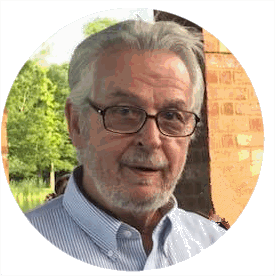
A New School Year at West Orange – Cove
“The West Orange-Stark Mustangs have gone to the state championship game four straight seasons. They are picked as one of the top teams in Class 4A, Division 2 again this season…” was the opening paragraph on a local radio station website article recently.
 “Welcome to the new school year! I am glad to share that West Orange – Cove CISD had an outstanding in-service and first week of classes…Our goal in delivering training is always to ensure that we provide students with the best quality education possible.” So started an article in a local paper by the Superintendent of Schools for WOCCISD just a few days later.
“Welcome to the new school year! I am glad to share that West Orange – Cove CISD had an outstanding in-service and first week of classes…Our goal in delivering training is always to ensure that we provide students with the best quality education possible.” So started an article in a local paper by the Superintendent of Schools for WOCCISD just a few days later.
“The best quality education possible”, are you kidding? Take a look at the elementary school:
- Did you know that West Orange Stark Elementary (WOSE) has been on the Texas Education Agency (TEA) list of the worst schools in Texas* for at least the last four years – 2018, 2017, 2016, 2015?
- Did you know that WOSE is ranked in the bottom 3% of more than 4,500 TX elementary schools for 2018, according to the Texas School Guide, published annually by Children at Risk (a non-profit) based on TEA data.

TEA created a new website (www.TXSchools.org) that contains interactive accountability rating summaries and detailed reports for each district, campus, and open-enrollment charter school in the state of Texas. The website shows the following 2018 ratings for WOCCISD:
Student Achievement:
Students that did better academically this year vs last year? GRADE OF 58% = FAILURE
Students that performed well on the STAAR test? GRADE OF 51% = FAILURE.
Students that are prepared for success after high school? GRADE OF 62% =FAILURE.
Students in this district that graduate on time? GRADE OF 65% = FAILURE.
School Progress
Students that performed better on STAAR test this year vs last year? GRADE OF 59% = FAILURE
Students that made a year’s worth of academic growth in reading and math? GRADE OF 57% = FAILURE.
Students that made progress relative to students at similar districts? GRADE OF 59% = FAILURE
Closing the Gaps
Grade level performance – Goals met: 1 out of 20 Targets. GRADE OF 5% = FAILURE.
Academic growth/graduation rate – Goals met: 0 out of 4 Targets. GRADE OF 0% = FAILURE.
English language proficiency – Goals met: 1 out of 1 Target. GRADE OF 100% = PASSED
Student achievement – Goals met: 0 out of 6 Targets. GRADE OF 0% = FAILURE.
District Overview
How well is this district performing overall? GRADE OF 58% = FAILURE
Orange County Overview
Within Orange County, the overall grades earned by the five independent school districts for 2018 are: #1) Orangefield with a grade of 88, #2) Bridge City with a grade of 86, #3) Vidor with a grade of 82, #4) Little Cypress-Mauriceville with a grade of 78, and then, in last place, West Orange-Cove with a grade of 58 – FAILURE!
This was the fourth straight TEA analysis with similar grades; however it should be mentioned that theTXschools.org results shown above for 2018 are preliminary. The final report for WOCCISD shows, “This district was impacted by Hurricane Harvey and did not receive an overall rating or grade”.
There will be an election on November 6th where voters will be asked to approve a $25.75 million dollar bond issue to fund two new buildings, one for athletics and one for a transportation center, plus artificial turf for athletic fields and other infrastructure repair or replacement. For academics, there are some items for technology, fine arts, and career programs. And, of course in today’s climate, there’s money to spend on safety and security.
In the meantime, the kids can’t read or do arithmetic!
Sixty-two percent of the kids are prepared for success after high school. It’s likely that most who make it do so because of themselves and not because of the schools. What about the other 38% of the students?
Who should you trust? The administration that talks about providing students with the best quality education possible, or the State of Texas that says WOCCISD is failing, based on the criteria by which all school districts are judged across the state?
When the only elementary school in WOCCISD is ranked in the bottom 3% of all elementary schools, when the Middle School is in the bottom 3% of all middle schools, and the High School is in the bottom 2% of all high schools – how important is it that we have a great football team?
At least in my mind, the priorities appear to be way out of whack. And we wonder why it is so difficult to bring new business to Orange. Think about it.
*NOTE: TEA publishes an annual Public Education Grant (PEG) list of underperforming schools? The press refers to this as the Worst Schools in Texas list. Search for “TEA 2018 PEG list” on the Internet.
Originally published in the Orange Leader on Wednesday September 12th 2018.

 Does doing well on the football field make up for the failure of the schools to educate all the students?
Does doing well on the football field make up for the failure of the schools to educate all the students?










 Take, for example, a “rider” attached to a bill in the legislature (state or federal). According to Merriam Webster Dictionary, in legislative procedure, a rider is an additional provision added to a bill or other measure under consideration by a legislature, having little connection with the subject matter of the bill.
Take, for example, a “rider” attached to a bill in the legislature (state or federal). According to Merriam Webster Dictionary, in legislative procedure, a rider is an additional provision added to a bill or other measure under consideration by a legislature, having little connection with the subject matter of the bill.
 n years later and the family is still there. The house looks better than it had in years. The owner has become my friend; he moved his way up at work and now supervises a large number of his fellow workers. After hurricane Ike, he came over and helped me clean up my property and fixed a downed fence. I was invited to celebrate his daughter’s quinceañera. For me that was a great honor to join his family like that. This man is humble, but to me he is the epitome of honesty, integrity, and goodness. We need more people like him, people that cast a big shadow.
n years later and the family is still there. The house looks better than it had in years. The owner has become my friend; he moved his way up at work and now supervises a large number of his fellow workers. After hurricane Ike, he came over and helped me clean up my property and fixed a downed fence. I was invited to celebrate his daughter’s quinceañera. For me that was a great honor to join his family like that. This man is humble, but to me he is the epitome of honesty, integrity, and goodness. We need more people like him, people that cast a big shadow.
